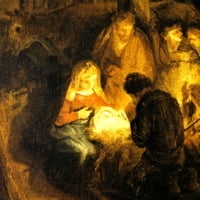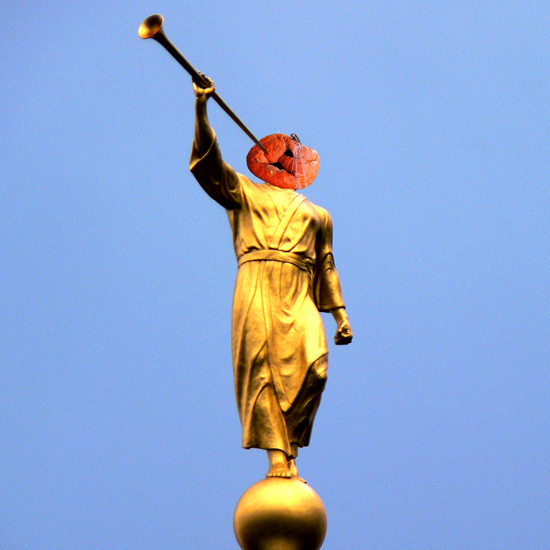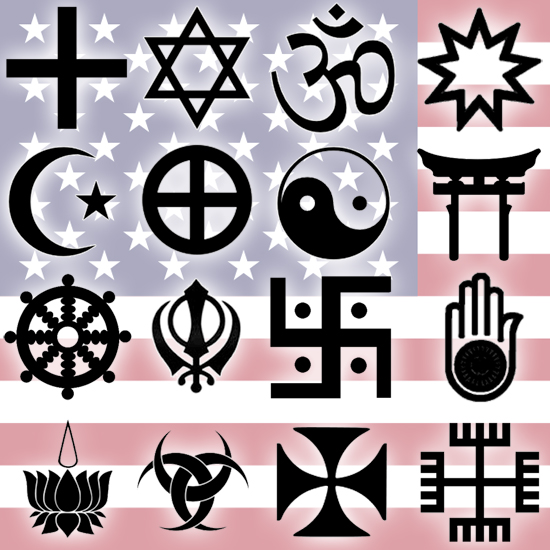
Taxation, some say, started it all. Or a census. Augustus, some say, decreed an accounting. Some say he didn’t. Some say he did, but not before Herod, so something in the start of the story is screwy, in any case. Two accountings, some say, to make everything fit.
I don’t know. If I had to choose, and some say I do, I suppose I’d come down on the side of screwy.
Some say they lived in Bethlehem. Some say they went there. From Galilee or Nazareth or some such place. Dark and cold on the dry road, on a donkey—or one of them on a donkey, at least.
I don’t know. From where I can see, the inconvenience of getting to David’s city seems so convenient to the purpose of the narrative.
No room in the inn, some say. Dark getting darker and cold getting colder, and all doors shut against them. Off to the barn, some say. Or a cave, say others. Or a grotto, say those of a romantic persuasion.
I don’t know. Capitalism and all. Seems an inn-keeper of any competence would rather have a paying guest than not, even on the floor. Maybe no one wanted to play host to a birth. They can be awfully messy. That I know. I’ve seen two. Maybe they couldn’t pay. But no one says that.
There were, so they say, shepherds, abiding. And I’ve no reason to doubt it. Shepherds abide all the time. Abiding seems to be what shepherds do best.
Then, an angel, and glory, some say. Day at night, and the abiding shepherds, awoken and fearing.
I don’t know. The miraculous tips on such a slippery slope. If once, angels, then why not when needed again, and again, and again?
Gloria, some say the angels said, in excelsis deo. Others say otherwise. Δόξα, some report, ἐν ὑψίστοις θεῷ.
I don’t know. Were the angels so sure the shepherds had been classically trained? And I’m quite sure that ἐν ἀνθρώποις εὐδοκίας doesn’t say what some say it does.
Of course, they had to be shepherds. The theme runs throughout—feed them, find them, go after the one. Sure, the gentle keepers of flocks would see, first.
I don’t know. In their absence, in their not abiding, but chasing their star into town, off went their sheep, hither and thither and higgledy-piggledy, into the night left cold and dark. Perhaps the heavenly host hung there, in the glorious sky, to keep watch for the true shepherds while they forgot their charges. But no one says that, either.
They found the babe, did those shepherds, some say. Just as the angel spoke, lying there, in the straw. Wrapped up. Parents, reverently, side to side. Animals, some suppose, adoring. They marveled and gaped and crept forward to see. Then off they went all over, telling everyone. They hardly believed it themselves, some say.
I don’t know. If I had to choose, and some say I do, I suppose I’d say, nah.
No independent account, you know, and not even the shepherds, themselves making record. Just a doctor and a taxer, early converts, to testify of it all, and then disagreeing with each other for much of it. Some even say even these didn’t write for themselves, in the first place.
Nah, I’d say, if some forced me to say, and some would. Not so. Not then. But, in my quiet moments, I want good tidings. I want great joy to all people.
In a dark night and cold, I want angels that sing, and glory, and some sweet child, and animals kneeling.
I want to creep forward, on hushed, reverent toes, towards the warm, lighted hay, and the baby that shines out our best human love. I want to adore this delighted love, pure and impossible, and bow down and worship it as the thing that will, indeed, save us all.
In my loud moments, too, that best love calls me forward. In moments, I would be that love, for all the good of the world.
Nah, I suppose I’d say. Not so. Not then.
But not for nothing.











